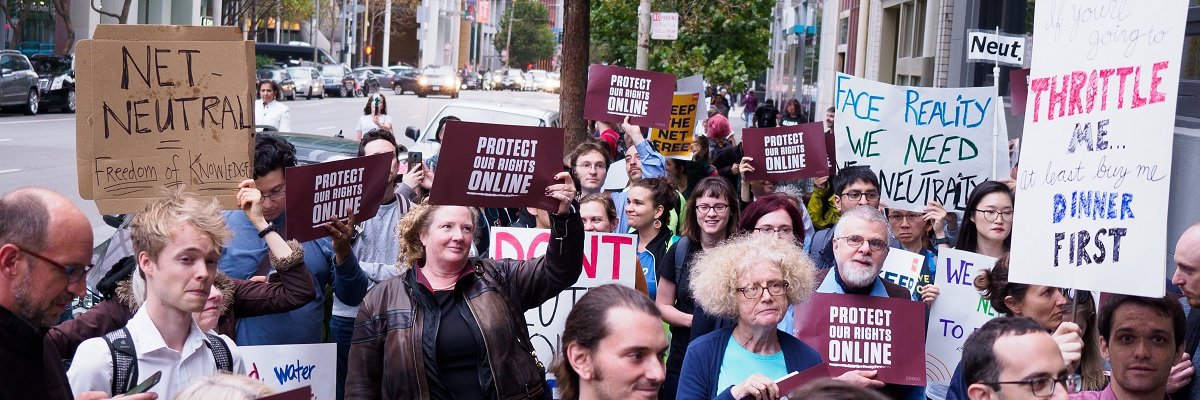In these political times, the Internet has been instrumental in coordinating mainstream efforts to get people up off their couches and into the streets. But when the government calls, instead, for people to take to the web, becomes a lot more difficult to tell whether the turnout is genuinely comprised of constituents - and it’s not clear what’s being done to prevent fake views from entering the official record of our public discourse.
The complications involved in a robotic chorus have become more obvious in the current debate on net neutrality and the Federal Communications Commission comment system. When the FCC convenes on Thursday, December 14th it will be to decide the fate of Obama-era “Open Internet Order” restrictions on Internet Service Provider, the culmination of months of public discussion and controversy.

Multiple organizations recently put forth reports on the FCC’s comment collection, highlighting the artificially high response from citizens. A recorded 21.7 million submissions poured into the agency from April 27th through August 30th, the period of open comment; unfortunately, according to the Pew Research Center, many of those were made under false names or via a temporary email address to which no response could be sent. And though the FCC had initially encouraged group submissions via the website’s API …

the creation of many, very similar comments at nearly the same moment has led the FCC to discount huge swaths of responses. The FCC, one should note, no longer accepts FOIA requests via email, instead relying on an online submission system or the physical mail.
According to the Attorney General of New York, the damage is greater than just the deterioration of our public comment process; there’s also the illegality of submitting comment under the names of actual citizens. New York Attorney General Eric Schneiderman has a website dedicated to gathering those affected by impersonation in the net neutrality comments and has insisted that a federal investigation be undertaken. Many other senators have similarly requested that the coming decision be postponed.
But even if the vote takes place and regardless of net neutrality’s fate, there will remain the implications of a robot army on Americans’ ability to effectively use the Internet as a tool of debate. We’re following up with the FCC on how they’ll handle this in the future. You can follow that request here.
Image via Wikimedia Commons and is licensed under CC BY-SA 3.0




